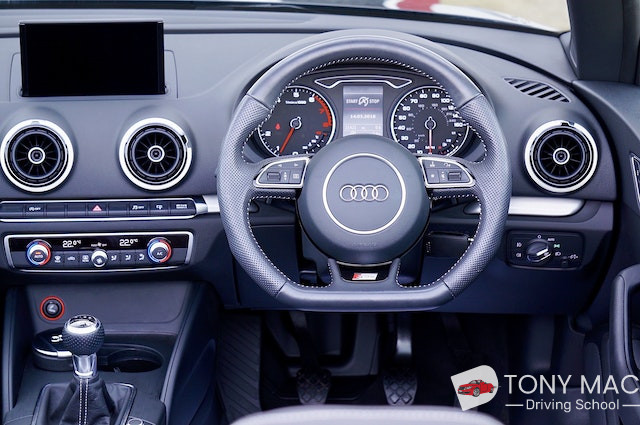Local Driving School: A Guide to Making Informed Choices
Driving is a necessary ability in today's busy world, allowing individual freedom, job opportunities, and an overall sense of self-reliance. Nevertheless, acquiring a driver's license requires appropriate education and training. Driving schools play a vital role in teaching the skills essential for safe driving and helping brand-new chauffeurs browse the often intricate world of traffic guidelines. Independent Driving supplies an extensive overview of local driving schools, including what to think about when choosing one, the typical curriculum provided, and often asked questions.
Value of Choosing the Right Driving School
Choosing the right local driving school can substantially affect a learner's driving experience. A well-chosen school can supply thorough training, foster excellent driving routines, and enhance the learner's confidence behind the wheel.
Benefits of Attending a Local Driving School
- Professional Instruction: Driving schools utilize experienced trainers who are familiar with local laws and the practicalities of driving in the area.
- Structured Learning: Organized programs ensure that students construct skills methodically, progressing from basic principles to advanced driving methods.
- Access to Vehicles: Many schools supply cars geared up with dual controls, improving safety throughout lessons.
- Preparation for the Driving Test: An excellent driving school will prepare trainees for the theoretical and practical elements of the driving test.
- Insurance Discounts: Completing a recognized driving course might make students eligible for cars and truck insurance discounts.
Elements to Consider When Choosing a Local Driving School
When trying to find a driving school, it is essential to assess different aspects to ensure a favorable and reliable knowing experience. Here are numerous elements to think about:
Accreditation and Licensing:
- Verify that the driving school is certified and certified with local guidelines.
- Check that instructors are accredited and qualified.
Reputation:
- Research local schools by reading reviews and reviews from former trainees.
- Look for recommendations from pals and family who have gone through training.
Course Offerings:
- Inquire about the variety of courses offered, consisting of standard driving lessons, defensive driving, and specialized courses for various age groups.
- Guarantee they offer both in-class and behind-the-wheel instruction.
Versatility and Availability:
- Consider the scheduling choices readily available, consisting of evening and weekend classes that accommodate your schedule.
- Inquire about the variety of hours per lesson and the total program duration.
Cost:
- Compare prices amongst various driving schools but keep in mind that the least expensive choice isn't always the very best.
- Examine any concealed charges, such as extra costs for materials or lorry leasing.
Teaching Style:
- Ask possible instructors about their teaching approaches and methods.
- Make sure that their design matches your learning preferences for maximum effectiveness.
Area:
- Choose a school that is easily located. Distance can save time and make it simpler to go to lessons regularly.
Table: Comparison of Local Driving Schools
| Driving School Name | Accreditation | Number of Instructors | Course Offerings | Price Range | Schedule Flexibility |
|---|---|---|---|---|---|
| Safe Drive Academy | Yes | 10 | Basic, Defensive, Refresher | ₤ 300-₤ 600 | Weekdays & & weekends |
| Citywide Driving | Yes | 15 | Teen, Adult, Advanced | ₤ 350-₤ 700 | Versatile hours |
| Quick Test Driving | Yes | 5 | Standard, Night Driving | ₤ 250-₤ 500 | Nights only |
| Eco Drive Institute | Yes | 8 | Eco-friendly Driving | ₤ 400-₤ 650 | Weekdays only |
Curriculum Overview
Local driving schools normally offer a thorough curriculum created to accommodate various learning phases. While specific programs might vary, the following prevail components discovered in the majority of driving courses:
Theoretical Classroom Instruction:
- Understanding traffic laws and regulations.
- Identifying road indications and signals.
- Finding out about automobile upkeep and safety checks.
Behind-the-Wheel Training:
- Driving in numerous road conditions (city, rural, highway).
- Practicing parking skills, consisting of parallel parking and parking on a slope.
- Experience in handling tough circumstances, like responding to emergency situations.
Practice Tests:
- Mock driving tests to assist trainees get ready for the actual exam.
- Evaluation of common areas that trainees battle with during assessments.
Parent/Guardian Involvement:
- Some programs encourage parents or guardians to take part in the learning process, stressing the value of practice beyond structured lessons.
Post-Licensing Courses:
- Advanced defensive driving courses might be offered for those looking to enhance upon their skills after getting their license.
Regularly Asked Questions (FAQs)
How long will it take to finish a driving course?
- The period differs based upon the course structure; normally, classes can range from a few weeks to a number of months.
What age can somebody start taking driving lessons?
- Many states permit individuals as young as 15 or 16 to begin driving lessons, depending on the local guidelines.
Do I require to bring anything to my first lesson?
- Usually, participants ought to bring a valid learner's authorization (if suitable), comfortable clothing, and any necessary kinds or payment.
What happens if I stop working the driving test?
- Most schools use extra lessons to help students get ready for retesting.
Can I select my instructor?
- Numerous schools enable trainees to request specific instructors, especially if they feel more comfortable with one particular mentor design.
Selecting the best local driving school is vital for a safe and positive driving experience. By considering essential aspects like accreditation, track record, course offerings, and teaching designs, prospective chauffeurs can make informed choices tailored to their needs. Going to a driving school not just provides foundational driving skills however also promotes responsible driving habits that will serve trainees well throughout their lives, making sure safety on the roadways for themselves and others.

